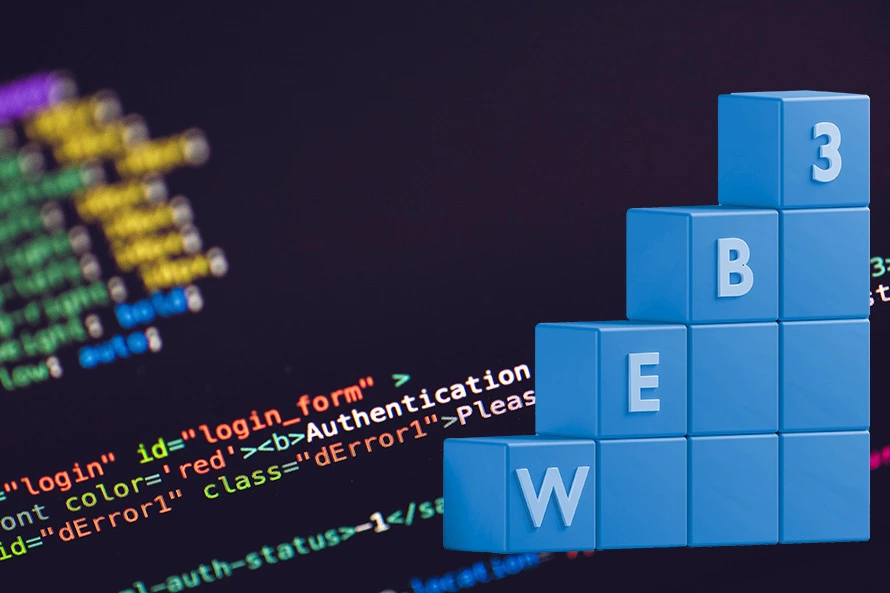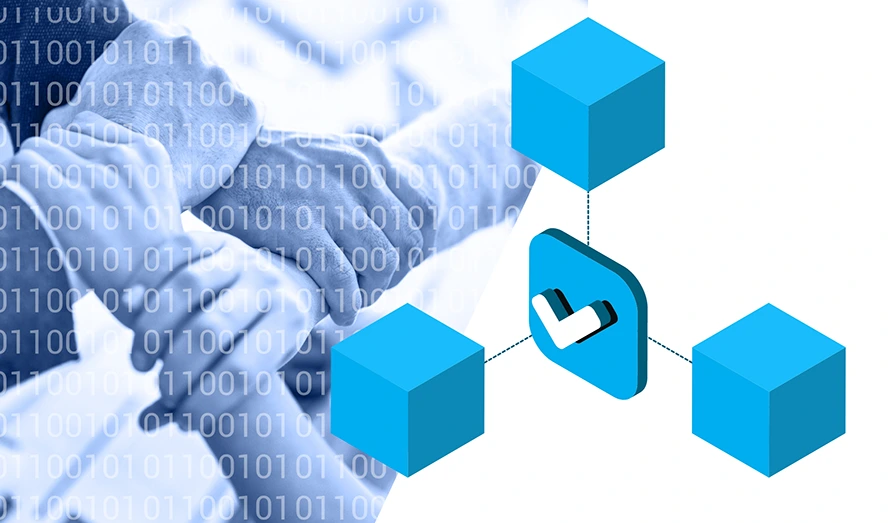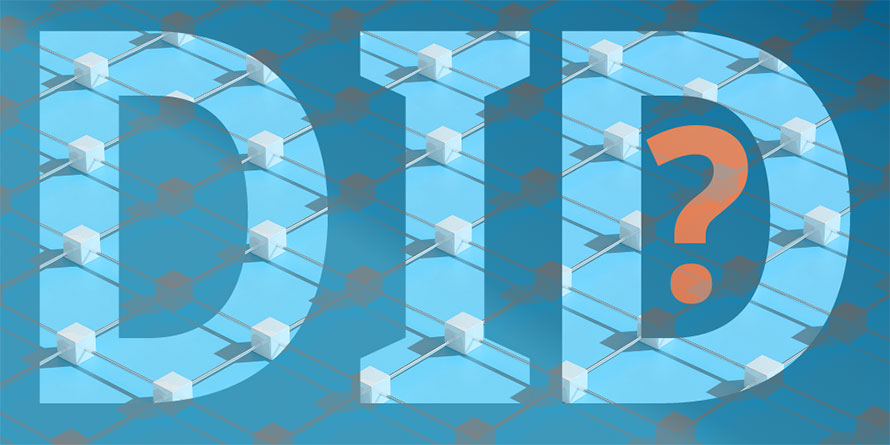The Growing Importance of Decentralized Digital Identities
As we do more and more on the internet, including sensitive operations, such as managing bank accounts, making payments, filing tax returns, requesting identity documents, and even voting, the question of an independently verifiable digital identity is ever more pressing. Decentralized IDentifiers (DIDs) are a digital identity system that is key to a society that avoids the excessive centralization of your important data, that is, putting all your eggs in one basket, as it were.
In the evolving digital landscape, the concept of identity has undergone a significant transformation. Central to this transformation is the emergence of Decentralized Identifiers (DIDs), a novel concept reshaping how digital identity is managed in the blockchain era.
What exactly is a DID, what can it be used for, and what are the implications of this technology for the security of personal data? In this article, BCdiploma explores the uses and benefits of DIDs.
Definitions
What exactly is a DID?
Decentralized IDentifiers (DIDs) are globally unique identifiers that enable individuals and organizations to establish their identity on the internet independently of centralized authorities. Unlike traditional identifiers like emails or phone numbers, DIDs are entirely under the user’s control and are not governed by external entities.
DIDs are unique digital identifiers that conform to a special Uniform Resource Identifier (URI) standard developed by the World Wide Web Consortium (W3C). A DID can serve as a unique identifier for any entity, such as a person, a company or an object, and contains a link between itself and a DID Document associated with it. A DID Document is a JSON formatted file that contains all the public information of the entity concerned by the DID, and, in particular, the unique keys that allow it to be unequivocally identified.
A DID therefore consists of a unique identifier associated with a unique entity, allowing it to be authenticated.
Core Features of DIDs:
- Decentralization: Operating beyond the control of any single authority, DIDs are foundational to the decentralized Web3 framework.
- Cryptography-Based Security: Utilizing cryptographic methods, DIDs offer enhanced security and integrity for digital identities.
- Persistent and Resolvable: DIDs are designed to be long-lasting and can be easily resolved to reveal associated information, ensuring stable digital identities.
- User Empowerment: DIDs empower users with full control over their digital identities, allowing them to manage and share their personal information securely.
DIDs and Public Key Infrastructure (PKI)
The DID system works thanks, among other technologies, to public key infrastructure (PKI). According to the PKI security protocol, two keys are entrusted to each entity:
- a public key, which can be shared with a large number of people, and serves to identify the individual or entity that owns it
- a private key, to be kept secret and known only by the owner, which serves as a digital signature
This public key cryptography process can be used to help:
- prevent identity theft
- organize archives of certificates and documents
- manage a list of certificates that have expired or been revoked
DIDs and blockchain
DIDs also make use of blockchain, a decentralized ecosystem allowing unique information to be stored in a sustainable and secure way. Blockchain technology allows the creation of a verifiable data register that can be used to store information in a decentralized manner and give access to DIDs while preventing their falsification.
DIDs: the key to a decentralized identity

What is a decentralized identity?
A secure authentication system based on a public blockchain makes it possible to create decentralized digital identities, or Self Sovereign Identities (SSI). Blockchain is by its very essence decentralized, existing as a multitude of united but independent nodes.
A decentralized identity can be defined as the sum of attributes and data that identify an individual, entity or even an object online.
A decentralized identity encapsulates the idea that information linked to the identity of person should be:
- under the control of the individual, and no one else
- private
- portable
A verifiable register encrypted on a public blockchain and based on DIDs guarantees end-users full control of their own digital identities and identifiers, and therefore the disclosure of their information.
Why do we need such a system?
Not everyone is fully aware of what happens to the data generated by our day-to-day use of websites and applications. Many pieces of data, sometimes quite private, are recorded, used and even sold by companies that collect them through, for example, the use of cookies.
Changing our way of interacting with the digital world through the concept of a sovereign digital identity means giving everyone back power over their personal data, and all the responsibilities that go with it.
Applications of DIDs:
- Preventing Identity Theft: With their robust encryption, DIDs provide a secure way to manage digital identities, significantly reducing the risk of identity theft.
- Enhancing Privacy: DIDs offer users greater control over their personal information, leading to improved privacy and trust in digital interactions.
- Verifiable Credentials: DIDs are integral in issuing and verifying digital credentials, such as educational certificates, enhancing authenticity in digital records.
- Healthcare and Legal Sectors: In sensitive sectors like healthcare and legal, DIDs facilitate the secure exchange of confidential information.
The Future of DIDs:
DIDs are not just technological advancements but are reshaping the future of digital interactions and identity verification methods. Their integration into various sectors and industries exemplifies their growing importance in the digital world.
Decentralized Identifiers (DIDs) represent a significant leap forward in digital identity management. By offering greater security, control, and privacy, DIDs are paving the way for a more secure, decentralized digital world.
What are the advantages of a system based on DIDs?

Taking back control of your personal data
Decentralized identities represent an opportunity to fully own and manage the essential data that concerns us, in particular by:
- offering an enhanced protection of user privacy
- reducing the risk of cyber attacks and identity theft, through the use of blockchain technology
- providing secure access to essential services (e.g. tax filing, banking)
- proposing a new system for both obtaining and sharing qualifications
Control all of your information with an e-portfolio
Grouping all your data and digital certificates together means they need to be managed on a daily basis, and in way that is secure and easy to use. E-portfolios allow their owners to keep digital credential together in a secure, personal and always accessible digital place.
E-portfolios are ideal for students taking university courses that award digital certifications, allowing them to be easily shared whenever and for however long they like.
BCdiploma: blockchain support for universities
BCdiploma offers various players, particularly universities and training organizations, new solutions based on the use of public blockchain technology. Our academic certificates and micro-credentials are easy to issue, impossible to falsify or lose, and can be stored in a blockchain e-wallet that is valid for life and ultra-secure: mywallet.cloud.
To find out more about our digital credentials, discover how our solution has revolutionized the issuing of diplomas at the University of Lille, or feel free to reach out to us via our website.
[title[What is a Decentralized IDdentifier (DID) and what can it be used for?]] [description[How Decentralized IDentifiers (DIDs), a novel concept reshaping how digital identity is managed in the blockchain era? Find out with BCdiploma.]]